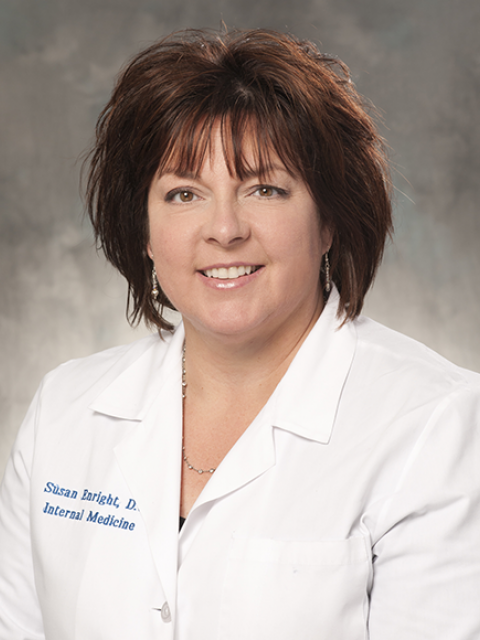
Why New Year’s Resolutions for Physicians Matter
by Susan M. Enright, DO, MACOI
ACOI President
January 9, 2025
As we enter 2025, the tradition of setting New Year's resolutions is as strong as ever. While many resolutions focus on personal goals such as losing weight or saving money, we often overlook our own wellness. We dedicate our careers to caring for others, often at the expense of our own well-being. In 2025, it’s crucial that we not only recognize the importance of physician wellness but also commit to resolutions that can improve our mental, emotional, and physical health.
I’m sure the stats on burnout won’t surprise you. Nearly 50% of physicians report experiencing symptoms of burnout (AMA). The pressures of patient care, long hours, administrative tasks, and the emotional toll of dealing with life-and-death situations are just a few of the factors contributing to this crisis.
Burnout not only impacts the health of physicians but can also have detrimental effects on patient care. Burnout is linked to higher rates of medical errors, reduced quality of care, and physician turnover. This creates a cycle where overwhelmed physicians are unable to provide the best care for our patients, further exacerbating the challenges in the healthcare system (The American Journal of Medicine). The start of a new year offers a natural opportunity for us to reflect on our well-being and set intentions for the year ahead.
A few ideas:
- Physical Health: Make Time for Fitness and Rest
- Resolutions could include setting aside time for regular exercise, even if it’s just a walk or short workout session each day. Additionally, prioritizing quality sleep is essential, as lack of rest contributes to burnout. Consider relaxation techniques like meditation to help unwind.
- Mental Health: Addressing Stress and Emotional Strain
- Mental health is an often-overlooked aspect of physician wellness. Emotional exhaustion and stress are common among healthcare providers, with many feeling the weight of their patients' struggles. One resolution could be to seek support when needed, whether through counseling, peer support groups, or stress management techniques. Practicing mindfulness, meditation, or yoga can help in coping with the emotional demands of the profession.
- Work-Life Balance: Setting Boundaries and Taking Time Off
- Consider a resolution to set clear boundaries between work and home life. This might mean taking more vacation time, disconnecting from work emails after hours, or saying no to excessive overtime to maintain balance.
- Professional Growth: Pursuing Passion Projects and Interests
- In addition to caring for others, consider focusing on personal growth. Committing to continuous learning, engaging in new hobbies, or pursuing a passion project outside of medicine can bring a sense of fulfillment. Whether it’s taking a course, volunteering, or engaging in creative activities, these pursuits can help prevent feelings of monotony and provide a healthy escape from the pressures of clinical practice.
- Support Systems: Building Stronger Connections
- Peer support networks, whether through formal mentorship programs or informal gatherings, can provide encouragement and solidarity. Additionally, consider seeking out opportunities to mentor younger colleagues, creating a culture of support and resilience within the medical field.
- Advocacy for Systemic Change
- On a larger scale, one resolution that could have a lasting impact is advocating for changes within the healthcare system to support physician wellness.
This New Year, please consider taking steps to improve your well-being. Whether through physical activity, emotional support, work-life balance, or advocacy for systemic changes, prioritizing wellness can be beneficial both professionally and personally.
Cheers to a happy and healthy 2025!

